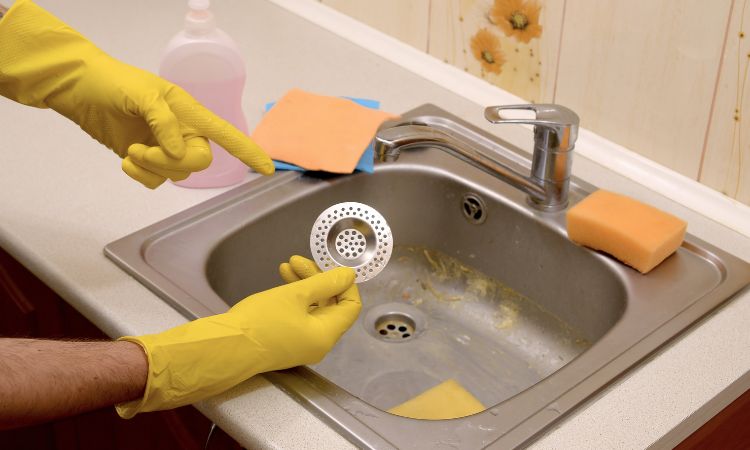Bathroom Plumbing Basics: Top Tips for New Homeowners
Bathroom Plumbing Basics: Top Tips for New Homeowners
Blog Article
What are your beliefs on 11 Must-Read Tips for Plumbing a New House?

For new house owners, understanding and keeping washroom pipes can conserve both money and time by protecting against pricey issues down the line. Here are some important washroom plumbing pointers to aid you maintain everything running efficiently.
Acquaint Yourself with the Key Shut-Off Shutoff
Recognizing where the major water shut-off shutoff lies in your house is crucial. This allows you to quickly turn off the water supply in case of significant leakages or throughout pipes emergency situations, stopping substantial water damages.
Frequently Check for Leaks
Little leaks can lead to big troubles. Consistently examine under sinks, around bathrooms, and near pipes fixtures for any signs of leakages. Try to find moisture, small drips, or rust. Capturing and fixing leaks early can avoid more significant damages and conserve water.
Don't Ignore Slow Drains Pipes
If your sink or bathtub is draining gradually, it's frequently an indication of a blockage creating. Addressing this early can protect against a total blockage. Make use of a bettor or a plumbing professional's snake to clear out particles. Prevent making use of chemical drainpipe cleaners as they can damage your pipelines gradually.
Know What Not to Flush
Bathrooms are not garbage disposals. Stay clear of flushing anything besides toilet paper and human waste. Products like wipes, feminine health products, and cotton bud should be disposed of in the garbage to avoid obstructions and drain back-ups.
Install Strainers in Drains
Area strainers in your sink and bathtub drains to capture hair and various other debris before they enter your pipes system. Cleansing the filters on a regular basis will help stop buildup and maintain water moving openly.
Maintain Your Hot Water Heater
Guarantee your water heater is readied to an appropriate temperature level (generally about 120 levels Fahrenheit) to avoid hot and reduce energy use. Flush the tank each year to get rid of sediment build-up, which can minimize the efficiency and life-span of your heating system.
Upgrade Your Components
If your home has older components, consider upgrading to extra efficient versions. Modern bathrooms, showerheads, and taps are created to utilize much less water while giving great stress, which can dramatically reduce your water expense and ecological impact.
Be Cautious with DIY Plumbing Fixes
While it's alluring to handle all home repair work on your own, beware with pipes. Some issues might need specialist know-how, specifically if they involve main water lines or drain repair services. Working with a specialist can occasionally be more cost-effective than do it yourself, specifically if it prevents further damage.
Get Ready For Cold Weather
Secure your pipelines from cold throughout winter by protecting pipelines in unheated areas like basements, attics, and garages. Throughout extreme chilly, let cold water drip from faucets served by exposed pipelines to help prevent freezing.
Schedule Normal Upkeep
Consider organizing yearly examinations with a qualified plumbing. They can find problems that you may miss, such as covert leakages or deterioration on pipes and components. Normal maintenance helps extend the life of your pipes system and can stop emergencies.
Conclusion
Recognizing and preserving your home's restroom plumbing can avoid numerous usual problems. By following these essential pointers, you can ensure your shower room remains useful and effective, saving you money and time in the long run.
Essential Plumbing Tips for Homeowners: Keep Your Pipes Flowing Smoothly
As a homeowner, understanding the basics of your plumbing system can save you time, money, and a lot of headaches. Plumbing issues can range from minor annoyances like dripping faucets to major problems like burst pipes that cause significant damage. This guide provides essential tips to help you maintain your plumbing system and tackle common issues.
Understanding Your Plumbing System
Supply System: Brings fresh water into your home from a municipal source or a well. Drain-Waste-Vent System: Removes wastewater and vents sewer gases outside. Fixtures and Appliances: Includes sinks, toilets, showers, dishwashers, and washing machines. Basic Maintenance Tips
Regular Inspections: Periodically check for leaks, corrosion, and other signs of wear and tear. Look under sinks, around toilets, and near water heaters. Know Your Main Shut-Off Valve: In case of a major leak, you’ll need to shut off the water quickly. Ensure everyone in your household knows where the main shut-off valve is located. Prevent Frozen Pipes: In cold climates, insulate exposed pipes and let faucets drip during extreme cold to prevent freezing. Use Strainers: Install strainers in sinks and tubs to catch hair, food particles, and other debris that can cause clogs. Common Plumbing Issues and Solutions
Clogged Drains:
Prevention: Avoid pouring grease down the drain and use drain screens to catch debris. DIY Fix: Use a plunger or a plumbing snake to clear minor clogs. For stubborn clogs, a mixture of baking soda and vinegar can sometimes help. Leaky Faucets:
Prevention: Replace washers and seals regularly. DIY Fix: Turn off the water supply, disassemble the faucet, and replace worn parts.

Hire A Pro Report this page